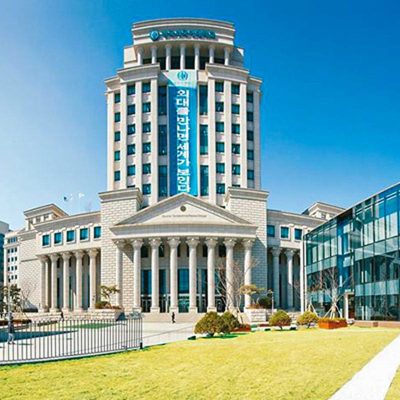April 2020
JIME Center, the Institute of Energy Economics, Japan
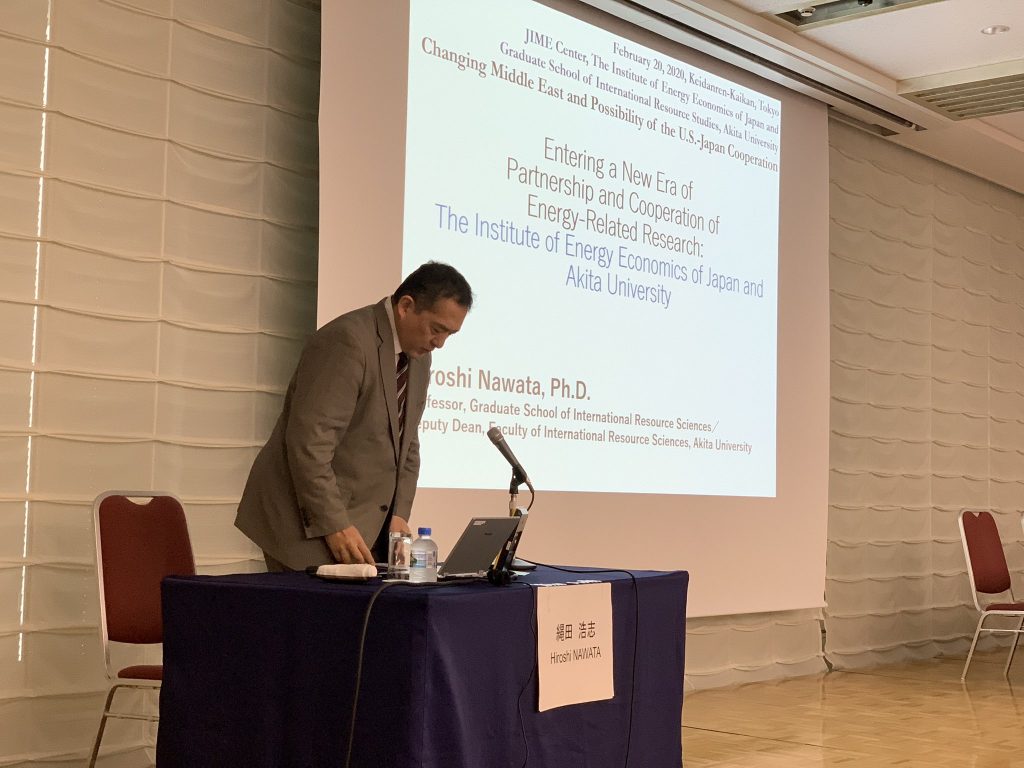
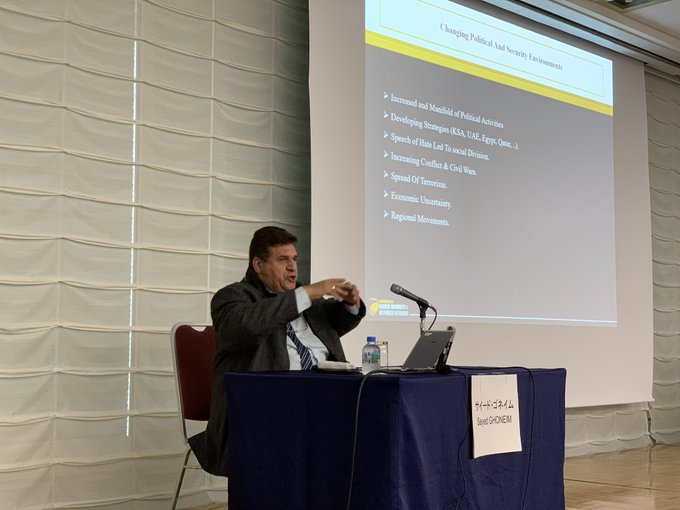
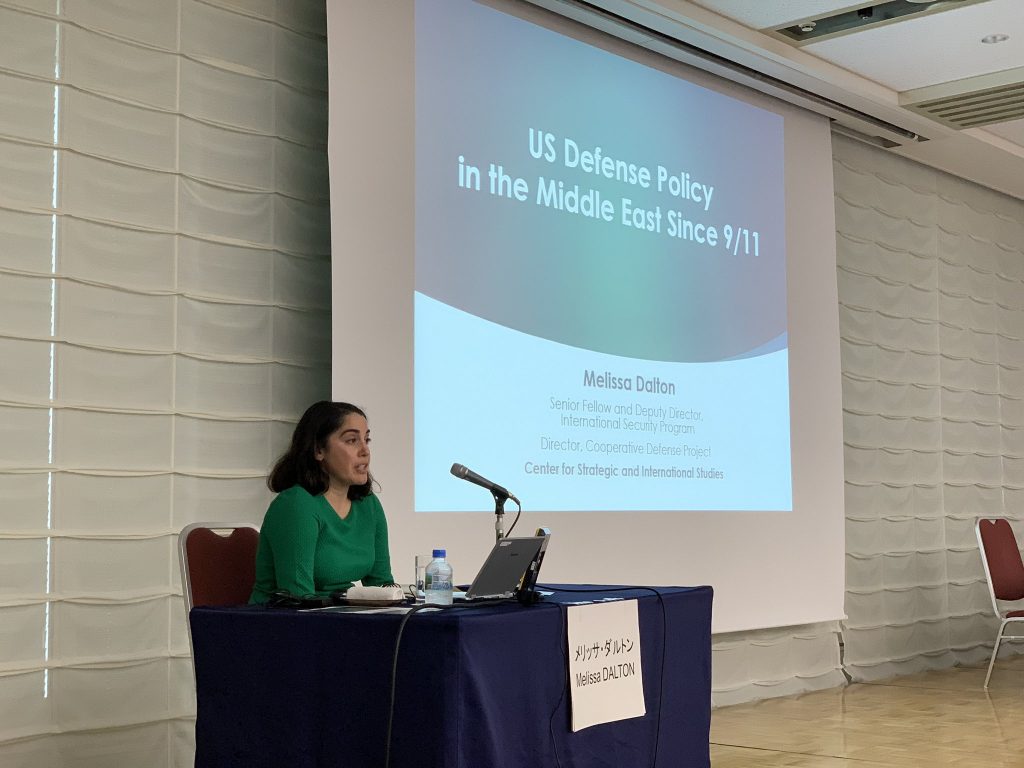
About JIME Center
JIME Center was originally established in September 1974 as the Japanese Institute of Middle Eastern Economies (JIME) and made a fresh start on April 2005 as a unit of the Institute of Energy Economics, Japan (IEEJ).
The Center is the leading research institute in Japan specializing in the research of the Middle East and North Africa (MENA) region from a broad set of perspectives including politics, economy, society, security and energy security. Researchers are highly skilled professionals with considerable experience in the region. The Center also accepts qualified personnel from supporting member companies and works in cooperation with other research institutes in Japan and around the world.
The JIME Center is dedicated to providing timely and unique in-depth analyses of the ever-changing developments in the region to both Japanese public and private sector. Through these activities, the Center aims to contribute to the further development of Japan’s economy.
Acknowledgments
The Middle East is vital for Japan from the perspectives of energy security, safety of Japanese citizens and business, and enhancement of the Free and Open Indo-Pacific Initiatives. However, there are limited opportunities for researchers of the Middle East studies and energy policy to discuss the U.S.-Japan alliance and their threat perceptions regarding the volatile political and security situation in the Middle East. In this project, experts from Japan and the U.S. exchanged their perspectives on the current Middle Eastern situation and energy policies. Through roundtables, discussions and interviews, Japanese experts deepened their knowledge of the U.S. diplomacy, security and energy policies, exchanged opinions with the U.S. counterparts, and expanded their networks in Washington D.C.
In this report, various experts were analyzing the history and current trends of the Middle East and energy policies of the U.S. and Japan, and political and security situation in the Middle East.
Dedicated scholars of the Center for Strategic and International Studies (CSIS), current and former, contributed this report and made the success of the project possible. JIME Center would like to thank John Alterman, Melissa Dalton, Jane Nakano, Hijab Shah and Andrew Stanley for their hard work and dedication. In particular, Jane Nakano generously provided her invaluable insights and comments for improving the report.
We would also like to thank various experts who generously contributed through papers, roundtables and interviews. Among these are; Ali Alfoneh, Mohammad Ataie, Sayed Ghoneim, Frank Jannuzi, KANNO Mamoru, Robert Manning, MATSUNAGA Hideki, James Schoff, and TAKAI Hiroyuki.
We are grateful to TATEYAMA Ryoji and KAKIZAKI Masaki for participating roundtables and contributing insightful papers as project members. In addition, colleagues at the IEEJ, HINE Daisuke, HORINUKI Koji, KOBAYASHI Amane, KOBAYASHI Yoshikazu, KONDO Shigeto, SAKANASHI Sachi, and YOSHIOKA Akiko participated in the project.
This project was made possible by the generous support from Japan Foundation’s Center for Global Partnership (CGP). We believe the project could enhance the mission of the CGP to strengthen JapanU.S. partnership.
April 2020
HOSAKA Shuji
Senior Research Fellow / Director
JIME Center, the Institute of Energy Economics, Japan (IEEJ)
『中東の安全保障環境の変化と⽇⽶協⼒の可能性』序⽂
⽇本にとって中東地域の政治情勢は、エネルギー安全保障や⽇系企業・邦⼈の活動と安全、「⾃由で
開かれたインド・太平洋」構想の普及といった観点からきわめて重要である⼀⽅で、⽶国の中東政策と
エネルギー政策がどのように展開され、⽇本の諸政策にどのような影響を与えるかという問いに関する 議論はほとんどなされてこなかった。また、中東情勢に関する⽇⽶の戦略や脅威認識について、中東地
域やエネルギーを専⾨とする研究者が議論する機会も限られてきた。
このような背景から、本事業では⽇⽶の中東・エネルギー専⾨家による共同研究を通じて、中東地域 における政治・安全保障環境の変化が⽇⽶両国に与える影響を分析し、⽇⽶間での対中東政策の共鳴や 差異が⽣じる要因、そして中東における⽇⽶協⼒の可能性について検討した。また、中東の専⾨家から もフィードバックを得た。本報告書『中東の安全保障環境の変化と⽇⽶協⼒の可能性』はその成果とし て、10 ⼈の専⾨家が⽇⽶の対中東・エネルギー政策の歴史的経緯と現状、中東情勢の変化について論じ たものである。本事業は国際交流基⾦⽇⽶センターの助成によって⾏われた。
本事業には戦略国際問題研究所(Center for Strategic and International Studies: CSIS)から多⼤なるご協⼒を頂いた。中東部のジョン・オルターマン⽒、エネルギー部のアンドリュー・スタンレー⽒、ジェイン・ナカノ⽒、国際安全保障部のヒジャーブ・シャー⽒、メリッサ・ダルトン⽒に感謝申し上げ る。特に、ナカノ⽒には事業の計画⽴案から進⾏に⾄るまで、多くの建設的なアドバイスを頂いた。
また、論⽂執筆、ラウンドテーブル、インタビューを通じて本事業にご協⼒頂いた専⾨家の皆様、特に モハンマド・アターイー⽒、アリー・アルフォネ⽒、サイエド・ゴネイム⽒、フランク・ジャヌージ⽒、
ジェームズ・ショフ⽒、ロバート・マニング⽒、菅野守⽒、⾼井裕之⽒、松永秀樹⽒に感謝申し上げたい。
⽴⼭良司⽒と柿崎正樹⽒には、国内の研究協⼒者として研究会への参加や論⽂執筆にご協⼒頂いた。
⽇本エネルギー経済研究所からは、⼩林周、⼩林良和、近藤重⼈、坂梨祥、⽇根⼤輔、堀拔功⼆、吉岡明⼦が本事業に参加した。
2020 年 4 ⽉
⼀般財団法⼈⽇本エネルギー経済研究所 中東研究センター
研究理事・センター⻑
保坂 修司
Contents
- Changes in Japan’s Policy toward the Palestine Question and Japan-U.S. Relations TATEYAMA Ryoji …………………………………………………… 6
- Japan’s Controversial Participation in the Iraq War YOSHIOKA Akiko..15
- Turkey, Japan and Sanctions on Iran KAKIZAKI Masaki ……………….. 22
- Between Energy Security and the Fear of Abandonment: the U.S.-Japan Relations and Iran Sanctions KOBAYASHI Yoshikazu ……………………. 28
- Challenges for Japan in Integrating the Middle East and Africa into the Free and Open Indo-Pacific Strategy/Vision KOBAYASHI Amane ….. 34
- U.S. Defense Policy in the Middle East Post 9/11 Hijab Shah and Melissa Dalton ……….………………………………………………………………….. 46
- The Evolution of U.S. Energy Policy in The Middle East:
Prices, Production, and Populism Andrew J. Stanley ……………………. 60 - The Evolution of the Regional Political and Security Interactions and Competition in The Middle East Sayed Ghoneim ………..…………………. 70
- Trump’s Maximum Failure and Iran’s Evolving Strategy in the Region Mohammad Ataie ………………………………………..……………………………… 90
About the Authors ……….……………………………………………………………. 97
About the Authors
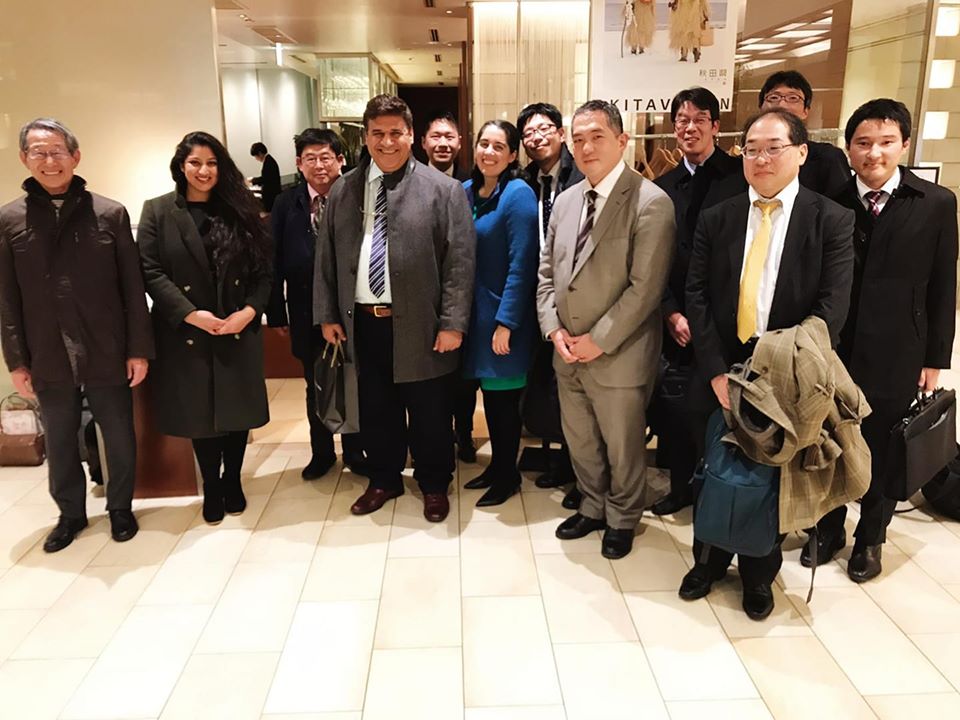
TATEYAMA Ryoji is a professor emeritus, the National Defence Academy and a visiting research fellow, the Institute of Energy Economics, Japan. He taught security studies and international relations in the Middle East at the NDA from 1997 to 2013. Prof. Tateyama had previously worked for the Japanese Institute for Middle Eastern Economies. He has written a number of books and articles, including:
Jews and the USA: Shifts in Israel Lobby (Tokyo, Chuo-Koron-Shinsha, 2016); “The Syrian Civil War: politicization of the crisis and challenges and dilemmas for humanitarian response,” in Atsushi Hanatani, Oscar A. Gómez, and Chigumi Kawaguchi, eds., Crisis Management beyond the Humanitarian Development Nexus(London, Routledge, 2018); “Multiple Crises in the Middle East and Iran,” CISTEC Journal, No.183, March 2020.
YOSHIOKA Akiko is a senior analyst of JIME Center – Institute of Energy Economics, Japan (IEEJ). She was a visiting researcher in the Gulf Research Centre in Dubai in 2007 and constantly provides expertise through institute’s publications and media. The fields of her research interests are contemporary Iraqi politics including Iraqi Kurdistan Region and the issue of governance of a fragile state. Her recent English publications include “The Shifting Balance of Power in Iraqi Kurdistan: The Struggle for Democracy with Non Institutionalized Governance” International Journal of Contemporary Iraqi Studies, 2015; “Relations between Japan and the Middle East,” The Newsletter, No.80, International Institute for Asian Studies, 2018.
KAKIZAKI Masaki is an associate professor of political science at Temple University, Japan Campus (TUJ) and adjunct lecturer at Showa Women’s University. He also serves as a non-resident researcher at the JIME Center, Institute of Energy Economics, Japan (IEEJ). Previously, he taught at the University of Utah, Westminster College, Kanda University of International Studies, and Sophia University. His key areas of expertise are Turkish politics and foreign policy. He has published research on party politics, social movements, political confidence, and multiculturalism in contemporary Turkey.
KOBAYASHI Yoshikazu is Senior Economist of Institute of Energy Economics Japan (IEEJ). His expertise includes the international oil and natural gas markets, energy security in Asia, oil politics in Middle East, and carbon recycling policy and technologies. He has directed numerous studies sponsored by the Japanese government in the relevant fields. Prior to joining IEEJ, he was an analyst at Tonen Corporation, a former ExxonMobil subsidiary in Japan, and coordinated refinery operations and crude oil procurement and transportation. Mr. Kobayashi holds a B.A. in social sciences from Hitotsubashi University in Tokyo and an M.A. in international relations from the Johns Hopkins University School of Advanced International Studies (SAIS).
KOBAYASHI Amane is a Research Fellow at the JIME – Institute of Energy Economics, Japan (IEEJ). His expertise includes politics and security of the Middle East and North Africa focusing on Libya, and terrorism and energy geopolitics in the region. Dr. Kobayashi has previously served for the Japan Institute of International Affairs (JIIA), the Energy and National Security Program of the Center for Strategic and International Studies (CSIS), the U.S. He has also worked for post-conflict development of Libya with the Japan International Cooperation Agency (JICA) during 2013 to 2014. Kobayashi received his Ph.D. and M.A. in Media and Governance, and B.A. in Policy Management at Keio University, Japan.
Hijab Shah is an associate fellow with the International Security Program at the Center for Strategic and International Studies (CSIS) in Washington, D.C. Her research focuses on U.S. and international defense policy, stabilization, unconventional warfare, counterterrorism and counterinsurgency, and Middle East and South Asian regional security issues. Ms. Shah graduated from the Edmund A. Walsh School of Foreign Service at Georgetown University in Washington, D.C. with a master’s degree in security studies in 2016 and a bachelor’s degree in culture and politics in 2011. She was also a postgraduate exchange student at the Center for the Study of Terrorism and Political Violence at the University of St. Andrews in Scotland.
Melissa Dalton is a senior fellow and deputy director of the CSIS International Security Program (ISP) and director of the Cooperative Defense Project (CDP). She also frequently conducts research and writes on security cooperation with allies and partners and U.S. defense policy in the Middle East.
Prior to joining CSIS in 2014, Ms. Dalton served in a number of positions at the U.S. Department of Defense (DoD) in the Office of the Under Secretary of Defense for Policy from 2007 to 2014. She most recently was a senior adviser for force planning, where she contributed to the 2014 Quadrennial Defense Review and DoD’s planning guidance. Previously, she served as special assistant to the under secretary of defense for policy, as policy adviser to the commander of the International Security Assistance Force in Kabul, Afghanistan, and as country director for Lebanon and Syria. Ms. Dalton holds a B.A. in foreign affairs from the University of Virginia and an M.A. in international relations from the Johns Hopkins University School of Advanced International Studies.
Andrew J. Stanley is a consultant working in the energy research field in Saudi Arabia. Previously he was an Associate Fellow at the Center for Strategic and International Studies (CSIS) in Washington, DC, where he covered oil markets for the Energy and National Security Program. His work has been widely published online, in academic journals, and is regularly referenced in outlets such as Bloomberg, Platts, and the New York Times. He has also previously worked at KPMG and Shell.
Sayed Ghoneim is a retired Major General of Egyptian Army and the Chairman of Institute for Global Security & Defense Affairs (IGSDA) – Abu Dhabi, UAE. He is also a senior member of the Advisory Board of “Program of Master of Security Studies and Information Analysis” at American University in the Emirates. During his long career since 1984, locally, he served in several command & staff jobs, his last position was Director of Operations at Military Intelligence and Reconnaissance Department.
Internationally, he served as Senior National Representative of Egypt to the U.S. CENTCOM, Tampa, (Florida), Chief of Staff/ UN Mission in Nepal (UNMIN) and occupied senior jobs in peacekeeping and humanitarian aids missions in Western Sahara and Rwanda.
Mohammad Ataie is a writer, journalist, and historian of Iran and the modern Middle East. His research interests include the 1979 revolution, Iran’s foreign policy, transnational Shi’a politics, Islamic movements, Islamic ecumenicalism, and sectarianism. Ataie earned his PhD in History from the University of Massachusetts. As of September 2020, he will be a research fellow at the Crown Center for Middle East Studies, Brandeis University. Prior to his PhD training, he was a diplomatic correspondent at the United Nations. His works have appeared in Foreign Policy, The Guardian, LobeLog, Middle East Policy Journal, Irna, Diplomacy-e Irani, and Syria Comment.





